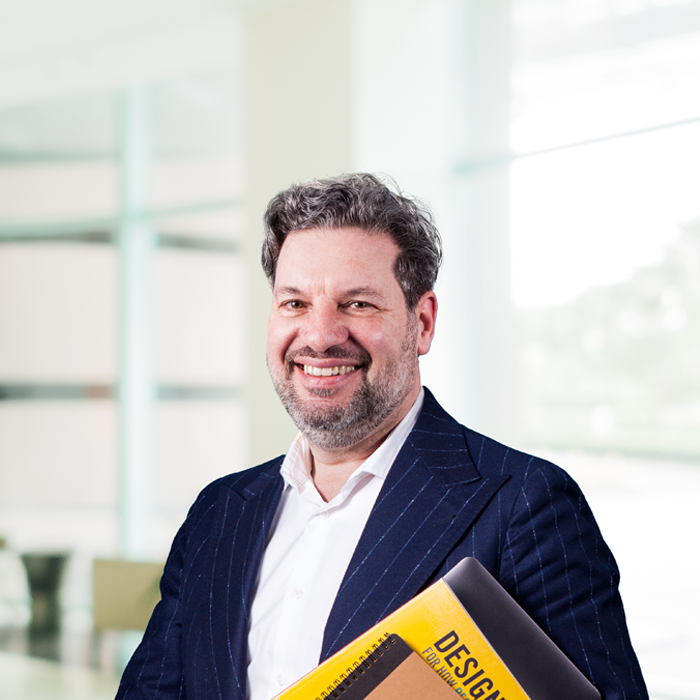What we learnt from (p)reflecting on 2022 and 2023

“We don’t learn from experience, we learn from reflecting on experiences” is an important quote by John Dewey. “If you can dream it, you can make it” is an important quote by Walt Disney. Combine the two and you’ll arrive at what we call (p)reflection: a word we made up to focus on the things we wanted to share with you over the course of 2023.
I’m a big fan of Van Gogh as you might know and I studied his art. Even more than that, I studied his letters! That’s right, he wrote a lot of letters, most of them to his brother Theo. In these letters, he writes about the paintings he worked on and the challenges he experienced in creating something good. He also shared his ideas on how to proceed with, or how to approach, a next project and asked for advice. I’m convinced that this (p)reflective way of working helped him a lot to achieve extraordinary levels with his art.
What did we reflect on?
We think that (p)reflection is a part of learning that could be used more often and we've been exploring it in the past few months. Maybe you joined us in this journey via aNewLetter. If so, you have seen us looking back and forward to the most exciting events of 2022 and 2023.
We also reflected on the research we conducted with Bohn Stafleu van Loghum while awaiting the results of the recent LPI Awards. Our own excited view on the results felt validated when we received external recognition by winning bronze in the Learning Impact category.
Besides that, we shared the 101 on learning platform migration and a great onboarding case. By creating content like this, we hope to help you reflect on your own practice (while also taking a look at our own, of course). Use it for your benefit, one step at a time.
Why did we look back to look ahead?
Life is a rat race. Have you recently met a person at work who said they are bored and don’t have enough tasks on their plate? Me neither. While it sounds productive, the big risk of a completely full agenda is that we might miss out on informal learning at work. Filling up your day means you have no time to chat with co-workers on work-related topics, or even to reflect on them by ourselves.
Even in formal learning settings these days, time for reflection seems rare, although it is a strong building block to create impactful learning.
And how do you, as a learning professional, organise time for reflection for yourselves? Learning in the flow of work is a popular approach to learning these days. I agree that this can be a very useful and effective approach, as long as it also contains moments of (structured) reflection. Don’t use it as a one-size-fits-all approach. Nothing solves everything.
Sometimes, taking a step back to reflect and see the bigger picture is more effective. Be mindful of the approach you take, and take desired results and context into consideration if you do so.
How did we explore this?
We try to help you to see from different angles, to find resources and events that might be useful for you, and to offer inspiration and good practices. Reading aNewLetter can be a scaffold; a structure to support your reflection process.
It’s even better if you add a little idle time to it. Let your mind wander and see where it gets you. Most often, it brings you to places that need your attention. Don’t hesitate to do so and if you ‘arrive’ there, try to listen to the thoughts that are bubbling up in your mind.
Your brain is a powerful tool if you use it in the right way. If you push it to its limits, you might only get transactional, day to day stuff done. If you give it some idle time every once in a while and listen, you’ll be able to use your brain to help you with transformational stuff; finding new and better ways to handle the challenges on your plate.
Every Friday at 12:00 PM, I schedule an hour to work-out. To be honest, I don’t like it at all. But almost every week during leg-press or rowing, the best ideas pop up in my mind related to topics that I’ve been working on during that past week. In between exercises I need a minute to recover and I use that time to make a few notes on my phone to remember my thoughts. It works for me. What works for you?
What’s next?
Are you in for an experiment? Let’s do it! Think about a major challenge that you are facing now. Think for a moment how it would look when this challenge is solved. What are the results that you can show to stakeholders and/or clients? How will they react? What will they say? What would their body language or facial expressions display? How would that make you feel? If you can dream it, you can achieve it!
Now, with this prepared mind, scan through the aNewLetter editions that we’ve sent you since the start of 2023. Pick one item that you think is best related, and one that is least related to your challenge. Read both items with your full attention. Check if you really understand what is written and if needed, read some parts again. After that, let your mind wander for a few minutes and pay attention to the things passing by your mind’s eye. What clues are simmering just under the surface or even bubbling up? How can you use these insights to work on your challenge? Let me know if you find something useful!
